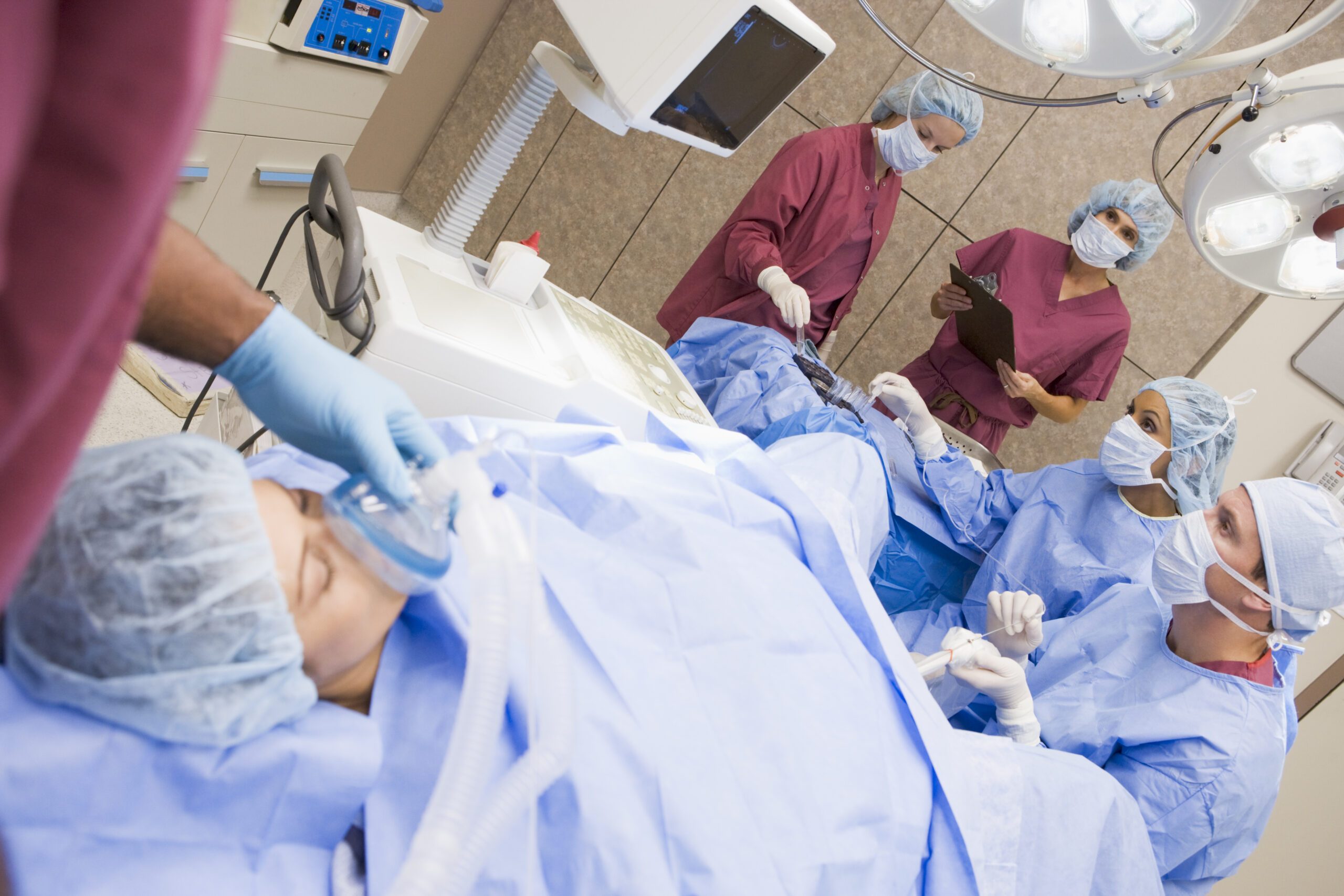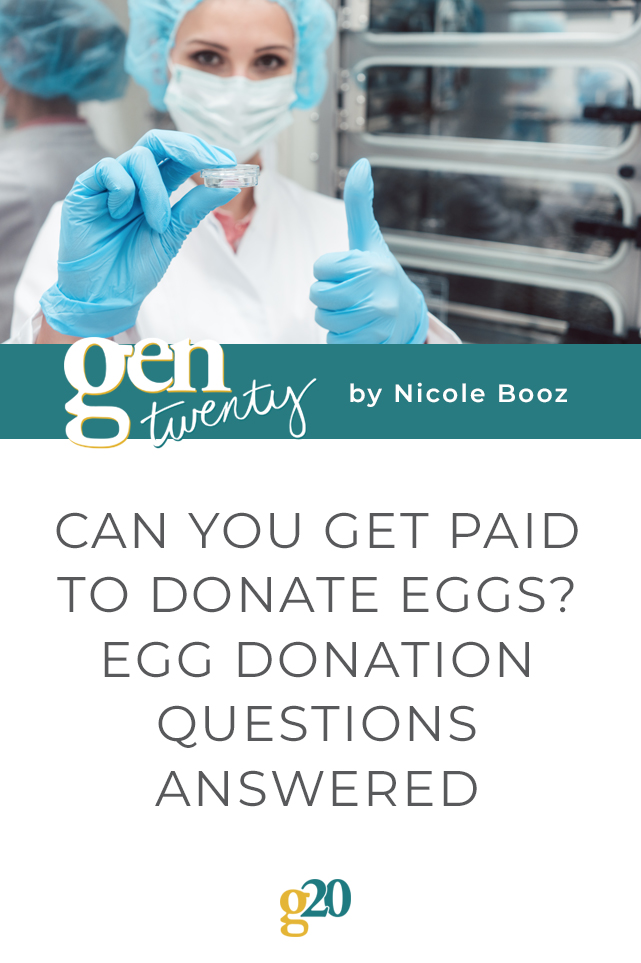If you’re in your 20s, egg donation may have crossed your mind. Maybe you want to help someone else start a family or maybe you’re looking to make some additional income through the process. Or maybe both! So can you get paid to donate your eggs? And if so, how much money do egg donors make? Read on.
There is a lot to know about the egg donation process. This article is a general overview of what you might expect if you choose to move forward as an egg donor. You will need to apply and connect with a fertility clinic to find out specifically what would be required of you.
Can you get paid to donate eggs?
The answer to this question is yes! You can get paid to donate your eggs. How much depends on a variety of factors, though.
You shouldn’t feel nervous about discussing the compensation for your own eggs. It is a long process with many office visits, restrictions, and the physical retrieval process. It’s also a beautiful step in making a family’s dreams come true. Compensation is part of that.
Keep reading for more information on common questions potential egg donors ask.
Why do people pay egg donors?
Typically, the recipients of the donated eggs will pay all expenses associated with the donation process, including medical checkups, fertility medications, and travel expenses.
Donating an egg for in vitro fertilization is way to make parents-to-be dreams come true. Truly that is reason enough to be compensated but you are also going through a long medical process that can impact your physically and psychologically.
How much can you get paid to donate eggs?
A very common question that everyone wants to know the answer to. Egg donor compensation varies from agency to agency as well as donor to donor. Generally speaking, donors are compensated anywhere from $5,000 to $10,000 for their donation. This can vary depending on different factors, but you’ll likely see something in this range per donation cycle.
Depending where you donate, travel expenses and any other expenses will most likely be covered as well. You will also likely get access to the genetic screening information that you can keep for your own personal health records.
How are egg donations paid?
Another common question! You will typically be paid a portion when you begin the process and the rest after final retrieval. Financial compensation is a normal part of donating your eggs and you should not be ashamed to receive egg donor compensation.

How does the egg donation process work?
The process of donating eggs is a relatively straightforward one. To become an egg donor, contact a local fertility clinic for more information and the exact process you would undergo. You’ll start the application process to find out if you are a good fit to be an egg donor at your fertility center. Many places have an online application you can fill out.
As a potential egg donor, you must be willing to undergo a variety of medial screenings. These include STD testing, bloodwork, infectious diseases testing, and an evaluation of your reproductive health. Young women are most often considered for the process. The egg donation cycle process can take from 4-6 weeks or longer depending on how quickly the results come in.
During this time, you will also need to see your doctor for medical exams, genetic testing, psychological screening, a physical examination including a pelvic exam, and additional blood work. They’ll go over your medical history, past medical procedures, family member history, and more. You may also see a genetic counselor during this process.
After the initial screening process, you might provide a sample of your eggs for analysis via transvaginal ultrasound or blood tests. This does not always happen, though.
Preparing For The Retrieval
After that, you will need to do self-injections of injectable medications to prepare your body for retrieval day. You’ll inject yourself with hormones in order to stimulate egg production (trigger shots) to prepare yourself for the egg retrieval procedure. You may experience soreness at the injection site.
It is possible to still conceive yourself during this process so many places will encourage you to abstain from sexual activity or use physical protection like a condom.
The egg retrieval process and procedure is a simple outpatient operation that takes around 30 minutes or so. You’ll be given anesthesia and sometimes a numbing medication before a needle will be inserted into your ovary vaginally to remove the egg. Some people find this uncomfortable, some people are not bothered by it at all. It typically is not painful during the actual procedure due to the medicines you receive.
After The Egg Retrieval Procedure
You can generally resume normal activities following the procedure.
Some women experience side effects throughout the process like cramping, breast tenderness, or abdominal pain. Your egg donor coordinator can answer more specific questions you may have.
There is a small chance of a complication called Ovarian Hyperstimulation Syndrome (OHSS) where the body releases too many eggs. In severe cases, this can require hospitalization but is rare.
Egg donation is a fairly long process with many scheduled appointments, restrictions, and potential side effects in order to provide others with the opportunity to become parents.

Frequently Asked Questions About Being an Egg Donor
Is it painful to be an egg donor?
Although there are several risks and discomfort that may occur throughout the egg donation procedure, it is usually painless and safe. You may experience some mild discomforts.
How many eggs are retrieved each time?
Typically between 10-20 eggs are retrieved during each cycle.
What disqualifies you from donating eggs?
There are some medical conditions that can prevent you from donating eggs. It can vary slightly place to place, but generally, you’ll need to meet these requirements:
- Between the ages of 21 and 29 years of age
- Good physical and mental health
- BMI (body mass index) between 19 and 25
- No smoking in at least 12 months prior to donation
- A regular menstrual cycle
- Not using hormonal IUD or hormonal birth control
- Not traveled to certain countries (i.e. places with a risk of Zika virus) recently
- Have been STI/STD-free for a required period of time
- No history of drug use
- No tattoos or piercings for a certain amount of time
You’ll have to go through a medial and psychological exam as well as take medications throughout the process. Typically there are somewhere between 5-10 appointments throughout the process, however, more or less may be necessary. You also have to be willing to be listed as a donor for a minimum amount of time
Egg donors typically remain anonymous unless all parties involved agree differently.
How many times can you donate eggs?
The American Society for Reproductive Medicine says that egg donors can complete six donation cycles over the course of their lifetime.
How long does the egg donor process take?
The process most typically takes about three months, however, this can be differently depending on a variety of factors.
How is egg donation different from traditional pregnancy?
A traditional pregnancies is when a woman becomes pregnant through sexual intercourse. The ovaries release an egg during ovulation, which is then fertilized. With egg donation, the egg is taken from one woman, fertilized outside of the womb, and inserted into another women by a doctor.
Is an egg donor the biological mother?
Genetically speaking, yes you are the genetic mother, however, you cannot claim rights to an unborn child. You will have no parental rights, those belong to the intended parents. There will be consent forms you will fill out that will dictate this further.
Will I know who gets my eggs?
As the egg donor giving donor eggs, you will likely not know the recipient couple unless it is otherwise agreed upon by both parties. The legal paperwork of the clinic you choose to work with will let you know more.
Am I a good candidate to donate my eggs?
Good question. You’ll have to meet the requirements above but also undergo some further evaluations. If it’s something you might be interested in doing, it’s worth having a conversation with a donation center or fertility clinic.
Are there any risks with egg donation?
As with any medical procedure, there is a certain level of risk involved. Another thing to note is that we have no real data on the long-term implications of egg donation. We don’t know about risks for the donor, the baby or the potential parents. This is something you should ultimately take into consideration as well when it comes to deciding if donating your eggs is right for you.

In Summary
Donating your eggs is really wonderful thing to do that is both generous and altruistic in nature. You are helping families achieve a dream they might not be able to otherwise. However, it is a long process and not without potential risk.
If you’re looking for more specific information, I recommend googling “egg donation [your city]” to find clinics nearest you. This is the best way to get the most accurate information from a medical team regarding egg donation.
